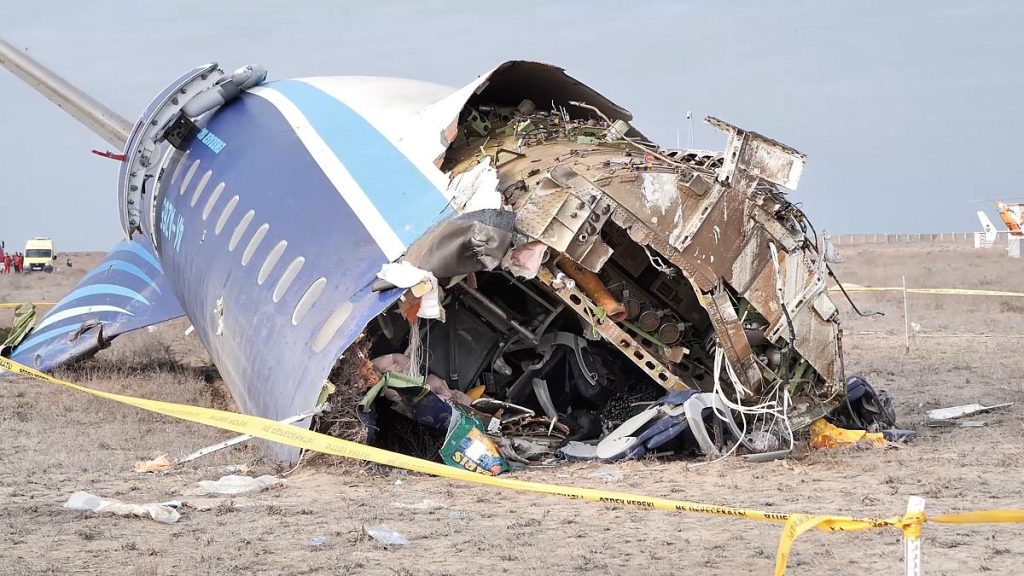The Aktau Air Disaster: A Developing Tragedy
On December 25, 2024, at approximately 14:31 GMT+1, an Azerbaijani airliner met a tragic end in the city of Aktau, Kazakhstan. The aircraft, whose specific model and origin airport remain undisclosed in the initial reports, crashed under circumstances yet to be fully determined. Kazakhstan’s Emergency Ministry has confirmed that over 30 individuals survived the impact, offering a glimmer of hope amidst the devastation. However, this confirmation carries with it the grim implication that dozens more may have perished in the catastrophe. The initial reports are fragmented, lacking crucial details such as the airline operating the flight, the total number of passengers and crew on board, and the specific location of the crash within Aktau. As rescue and recovery efforts are underway, the world awaits further information with bated breath.
The Immediate Aftermath: Rescue, Recovery, and Uncertainty
The immediate aftermath of the crash is a scene of intense activity and profound uncertainty. Emergency responders, including medical personnel, firefighters, and search and rescue teams, have converged on the crash site. Their primary focus is on locating and assisting survivors, providing immediate medical attention to the injured, and recovering those who have tragically lost their lives. The chaotic nature of the scene, coupled with the limited information available in the early stages, makes it difficult to ascertain the full extent of the damage and the precise number of casualties. The Emergency Ministry’s statement regarding more than 30 survivors offers a beacon of hope, but the possibility of a significant death toll underscores the gravity of the situation. The focus remains on providing aid to the survivors and bringing closure to the families of those affected.
The Search for Answers: Investigating the Crash
As the rescue and recovery operations continue, attention will inevitably turn towards understanding the cause of this devastating accident. Aviation experts and investigators will meticulously examine the wreckage, analyze flight data recorders (black boxes), and interview survivors, air traffic controllers, and ground crew to piece together the events leading up to the crash. Possible factors under consideration will include mechanical failure, pilot error, adverse weather conditions, and potential acts of sabotage or terrorism, although no evidence of the latter has been reported at this early stage. The investigation will be a complex and painstaking process, requiring international cooperation and meticulous attention to detail to determine the precise sequence of events and ultimately prevent similar tragedies from occurring in the future.
The Human Impact: Grief, Resilience, and Support
The human impact of the Aktau air disaster extends far beyond the immediate victims. Families and friends of those on board are grappling with unimaginable grief and anxiety as they await news of their loved ones. The uncertainty surrounding the fate of those still unaccounted for adds a further layer of anguish to an already heart-wrenching situation. Support networks, including crisis counselors, grief support groups, and representatives from the airline and government agencies, are mobilizing to provide comfort and assistance to those affected. The resilience of the human spirit will be tested in the face of this tragedy, but the outpouring of support and compassion from around the world serves as a reminder of the shared humanity that binds us together in times of crisis.
The Global Response: International Cooperation and Condolences
The news of the Aktau air crash has reverberated around the globe, prompting expressions of condolence and offers of assistance from international leaders and organizations. Governments of the countries involved – Azerbaijan and Kazakhstan – are working closely together to coordinate the rescue and recovery efforts and to provide support to the victims and their families. International aviation authorities and safety organizations are also offering their expertise and resources to aid in the investigation. The global response underscores the interconnectedness of the world and the shared commitment to ensuring air travel safety and supporting those affected by such tragedies.
Looking Ahead: Lessons Learned and the Path Forward
The Aktau air disaster serves as a stark reminder of the inherent risks associated with air travel and the importance of continuous vigilance in maintaining safety standards. While the investigation is still in its early stages, the findings will undoubtedly inform future efforts to enhance aviation safety protocols and prevent similar tragedies. The lessons learned from this devastating event will be crucial in shaping the future of air travel and ensuring that the skies remain as safe as possible for all. As the world mourns the loss of life and offers support to those affected, the focus must remain on learning from this tragedy and working together to prevent future catastrophes. The Aktau air disaster will undoubtedly leave a lasting impact, but the collective response to this tragedy will hopefully lead to positive changes and a renewed commitment to air travel safety.














